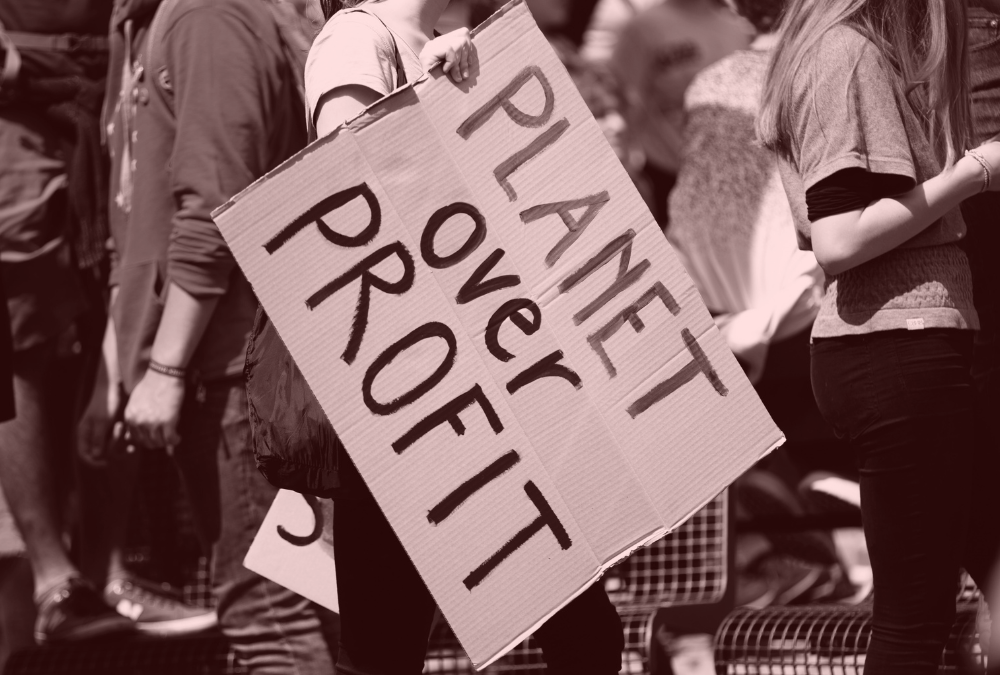As outlined in the article I published last Sunday, today is the first day of COP28, a 13-day conference in which world leaders are set to decide on whether they plan on averting climate change disaster or whether they’re more keen on a few more fossil fuel deals while the planet burns.
Given that this is an experimental format which I am trying to develop as I go along, it will likely take the form of a loose running commentary that is interspersed with news stories which are directly related to climate change, the conference itself, and/or environmental crime, a key link in the complex chain of problems that make up climate change. I am also encouraging anyone with relevant expertise to contribute guest posts along those lines. The more informed this discussion, the more impactful this process will be for every reader.
In the meantime, I’m sharing the publications which I’m using as my information streams this morning and probably throughout the conference in its entirety. I’m doing so for two reasons: to encourage readers to go directly to the source of information that I’m using to relay key facts in my commentary pieces and to promote the idea of sharing credible sources of information with each other. Feel free to send me links to whoever you’re following, too.
My main stream of information is going to be The Guardian’s live blog, which you can find here. It provides excellent, quality summaries of every major speech or decision in the conference, along with useful background for readers who are unfamiliar with who’s who in the halls of power. I will also be following Politico Europe’s coverage as that news portal’s reporters tend to have very good access to the sidelines of these kinds of conferences, so it’s good to get a sense of what the feeling on the ground is.
Lastly, and perhaps most importantly, is the Centre for Climate Reporting, the brilliant team of journalists who, three days ago, published a critically important story about how Sultan al Jaber, the UAE’s handpicked president of COP28 and head of the state’s oil company, sought to lobby foreign governments and their representatives for oil and gas deals across the globe.
That same day, they also published an undercover story which exposed how Saudi Arabia aims to offset dwindling demand for fossil fuels due to calls to phase them out by instead shifting more and more of its fossil fuel interests towards emerging African and Asian economies and enacting strategic plans to entrench their dependence on fossil fuels.
After reading those two paragraphs alone, the opening speeches made by high-ranking United Nations officials earlier this morning feel like paltry theatre.
In its live blog, The Guardian reports:
“António Guterres, the UN secretary general, has said this year’s COP climate talks should aim for a complete “phase-out” of fossil fuels, insisting of the 1.5C climate goal: “It is not dead, it’s alive.”
Speaking to French state-backed news agency AFP before embarking on his flight to attend the conference in Dubai, Guterres said:
Obviously I am strongly in favour of language that includes (a) phaseout, even with a reasonable time framework.
We have the potential, the technologies and the capacity and the money – because the money is available, it’s a question of making sure it goes into the right direction – to do what is necessary, not only to keep the 1.5 degrees alive, but alive and well.
The only thing that is still lacking is political will.”
In a separate address, Simon Stiell, the executive secretary of the UN climate convention, clinched the mood effectively when he said that “the problem is clear: business-as-usual is breaking our planet. At the Cop28 climate conference, leaders must get to work fixing it”.
From the outset, it is immediately evident that climate activists will have their work cut out for them. It will take truckloads of people working together in a coordinated, global campaign to elicit the momentum and sustained pressure that is going to be necessary to adequately address the root problems of climate change (fossil fuel financing being the largest one of them all) in time to avert the more catastrophic scenarios we are facing within our lifetimes.
I am saying this right now at the beginning of the conference because the mere fact that this conference was entrusted in the hands of some of the wealthiest oil barons on the planet obviously does not inspire any kind of confidence.
Representatives who are bought and paid for will be easy to spot – just listen out for anyone saying anything that sounds like it’s going against the notion of a total, unequivocal phase-out of fossil fuels, and you’ll be listening to someone who’s working against the interest of the planet.








